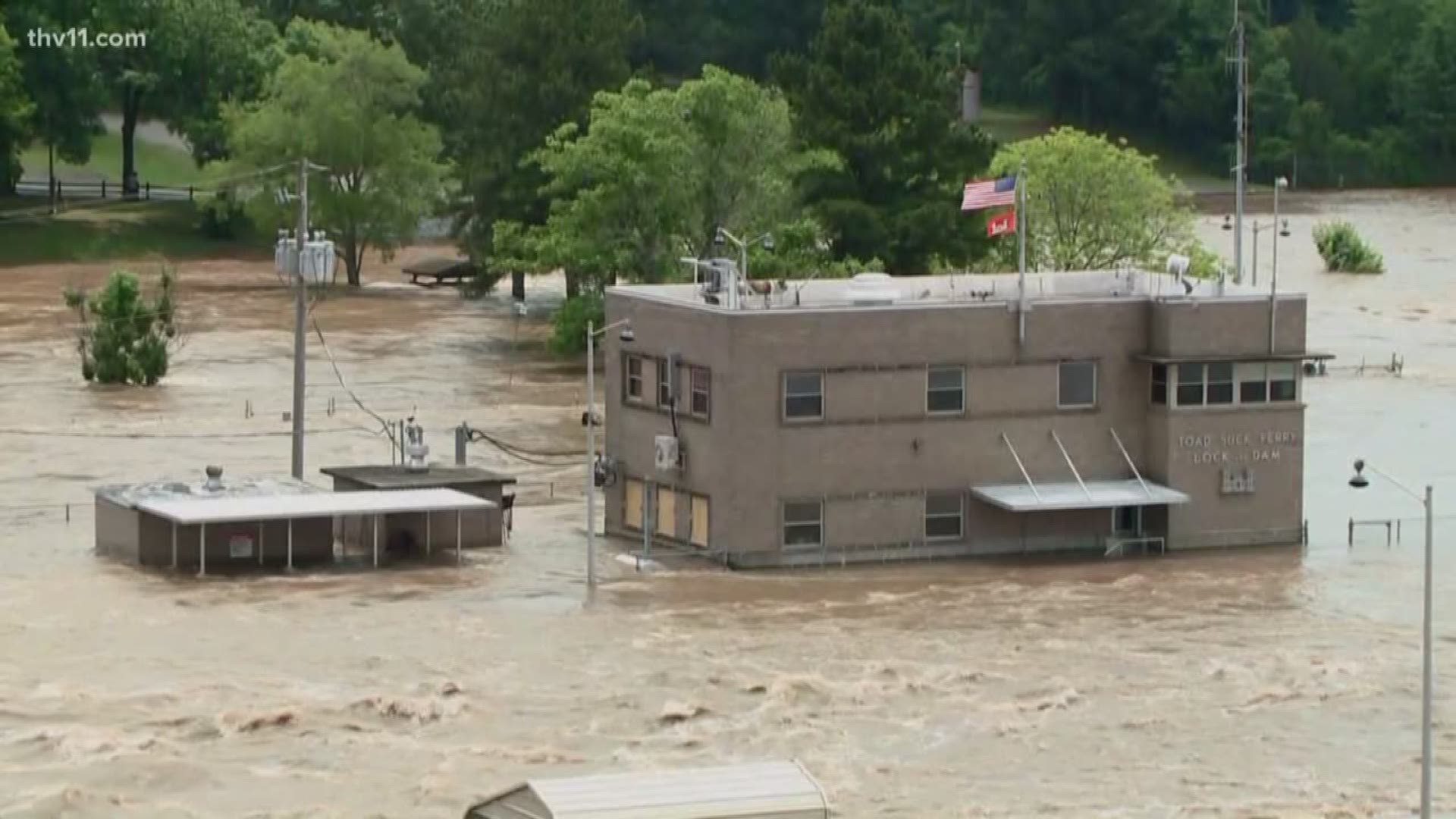LITTLE ROCK, Ark. — The historic flooding event on the Arkansas River over the past month has been a wake-up call to officials over the state’s levee system. Gov. Asa Hutchinson wants a task force with $10 million in startup money to answer that call.
“I'm signing executive order 19-10, that will establish the Arkansas levee task force,” the Republican governor announced to a Thursday news conference.
“We have levees that are needed but there's not an organizational structure that will provide the maintenance.”
The panel will have about 20 people drawn from about 10 government agencies, county representatives and lawmakers. They will be charged with analyzing what the system is like currently, what repairs are needed right away and what maintenance will cost in the future.
“It's clearly time that we have to take stronger action and that's what I'm asking the levee task force to review and make recommendations on,” the governor said.
Alarm bells about the levee system have been ringing for at least four years. That’s when flooding led to new laws meant to spur county officials to get a handle on their local flood control.
The governor said only 20 county clerks reported back out of the 93 recognized levees in the state. With a handful of failures and near failures during this most recent event, the state is now stepping up.
“I'm afraid that the flooding and devastation caused by it has probably gotten a lot of the message out to the people that were negatively affected,” said Rob Rash, the CEO and chief engineer of the sprawling St. Francis Levee Board.
He oversees maintenance of the structures across eight counties in northeast Arkansas. “It costs us about $3 million per year to maintain the 411 miles of levee.”
The task force will identify how to spend the initial funds while leaning on districts like St. Francis to guide levee boards that have fallen behind. The governor pointed out that once a levee board is recognized and appraised by the Army Corps of Engineers, it opens a stream of federal money available for repairs. It will also help sell the importance of activating dormant boards, with some personally affected lawmakers hoping to show a good levee can be a life-saver.
“We lost access to roads. This is not just an agriculture fields problem,” said State Sen. Jason Rapert (R – Conway), who pushed for laws in 2015 after a levee failed and flooded his property near Toad Suck Dam.
“This is not just a flooding of homes problem. This is a situation where people can't get to hospitals and doctor’s appointments. They can’t get to their jobs.”
The governor wants a report from the task force by the end of 2019.

